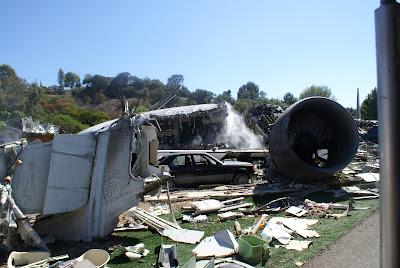The PBD is a positive step forward in India's relationship with its diaspora. The conventions in the past few years have helped the Government acknowledge the important role played by the diaspora in India's efforts to acquire its rightful place in the comity of nations.
Among the decisions taken by the Government of India as a result of wider consultations held at these Conventions, are formulation of the Overseas Citizenship of India, establishment of Overseas Indian Facilitation Center, conceptualization of PIO University, formation of Prime Minister's Global Advisory Council of People of Indian Origin, and the proposed India Development Foundation. A series of programs like Know India program and a scholarship program for diaspora children have also been designed specifically for the diaspora youth.
Among other things, the convention this year held sessions on the preservation of diaspora language and culture and the importance of the diaspora as facilitators and bridge builders. The convention was a wonderful gathering of Indians from various walks of life and countries, and offered them an invaluable opportunity for interaction. However, like any new venture, there is a room for improvement. Here I list a few.
Where are the issues? As an Indian residing outside the country, we face many issues that are often un-noticed or overlooked. Some of these issues in todays' volatile economic situations may have serious repercussions and need to be addressed – like recession, job cuts, immigration issues, etc. Many immigrant Indians in the West face the imminent fear to receiving the pink slip. Many are stuck in the mortgage crisis in the US. Some face problems procuring migrant status for their families. There are many such issues that affect Indians abroad.
On the onset, when you hear of a diaspora meet, you expect it to be a dialog between the organizer, here the Ministry of Overseas Indian Affairs, and the attendees. However, the convention this year seemed to be a monolog by the Indian Government. The ministers and officials of various states outlined their expectations from the Indians living abroad. At other panels the speakers spoke about the achievements of Indians overseas. However, there was no talk of the problems that the pravasis face outside the country and how the Government or the country can help them out when they are in trouble.
Representation of the common NRI: It seemed that there was little or no representation of the common Indian living abroad. The panelists at the convention, who represented the NRIs, can be easily called the elite crowd. They do not face the challenges of settling down in a new country or the worries of receiving a pink slip any day their company may collapse or decide on job cuts.
There is a dire need of having representation of the NRIs and PIOs from various walks of life who face everyday problems, to highlight these issues and the expectations that the non-resident Indians have from the Indian government. As the brief on the PBD website stated: “The annual Pravasi Bharatiya Divas Convention provides a much needed platform to the Overseas Indian Community for exchange of views on ways and means to fulfill their aspirations and expectations from the land of their ancestors.” The latter needs to be thought about.
Inaccessibility to the delegates: The PBD 2009 boasted of an impressive line-up of speakers of Indian origin from various countries. From former UN Under Secretary General Shashi Tharoor, to the chairman of India's National Knowledge Commission Sam Pitroda, to Harvard Professor Sugata Bose, and many more, they spoke and went. The sessions often went into an overtime, thus cutting out on Q&A sessions and leaving out the interaction with the attendees. The speakers were nowhere to be found once the panels got over. There was no opportunity for one-on-one interaction with them either.
Its all about money: Ultimately it all boils down to moolah. The underlying statement of PBD 2009 was attracting NRI money into India. Most panels focused on this aspect at the convention, some even losing focus of the topic and talking about money flow into India. Often there was a debate between ministers and officials of various states – each contending whose state was better for NRI investments and which states had made most progress and growth. The states clearly vied each other to convince the investors to chose their part of the country for ventures.
It was also pointed out that apart from business and investment opportunities, NRIs also had various prospects for philanthropy in the country. So whoever was not interested in doing trade and business in India, should consider diverting funds for charity to the country.
All said and done, a relationship can be based on the concept of give-and-take. As long as NRIs give their money to India (in form of investment or charity), they also have expectations from India to do something for them, and to look after their interests. The organizers of the PBD may want to think about this aspect for the future conventions.






































